Local elections 2023: How sewage topped the political agenda
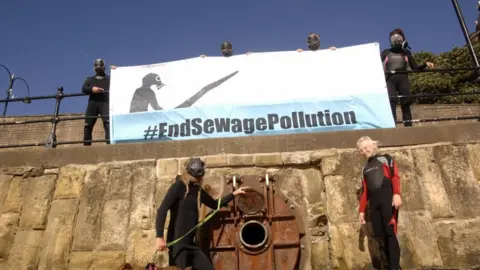 Steve Crawford
Steve Crawford"It's like swimming in an open sewer. Wet wipes, tampons, other detritus, it's disgusting. It smells like a filthy toilet."
That is the experience of Scarborough surfer Steve Crawford, of Surfers Against Sewage. Every time there's a bit of rain, not a severe storm, he says, the town's North Bay receives an overflow of sewage - sometimes for several hours at a time.
According to the Environment Agency (EA), the quality of the bathing water there is excellent.
Yorkshire Water said it spent £110m on improving water quality on beaches along a 50-mile stretch of North Sea coastline between 2010 and 2014, installing hi-tech waste water equipment at sites in Scarborough, Bridlington, Flamborough, Filey and Skipsea to make beaches "cleaner than ever".
It says sewage discharges on its coastline were down by nearly half in the 2022 bathing season - and a further £180m is being spent on a "storm overflow improvement plan".
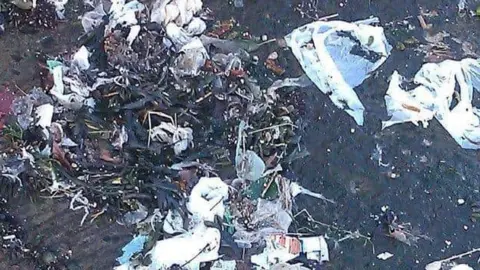 Steve Crawford
Steve Crawford But, according to Mr Crawford, the measures have not worked. He questions how well the new storage tanks and pumps are operating because he says their capacity appears to be breached so often, with waste consistently backed up.
Ana Cowie, a marine pollution officer at Yorkshire Wildlife Trust, says North and East Yorkshire's rivers and coasts are under huge stress from a range of factors including sewage overflows, and identifies wet wipes being flushed down toilets as a big issue.
The government has recently proposed a ban on wet wipes containing plastic in England but Ms Cowie warns there are no simple fixes. As well as infrastructure changes, the environment needs to be held in much higher regard for bad habits to change, she says.
'Make polluters pay'
Two weeks before voters in parts of England and in Northern Ireland go to the polls to choose new councillors, those in office are swimming against a tide of public anger at water companies dumping untreated, raw sewage.
Most waste water travels to sewage works to be treated but under "exceptional circumstances", companies are allowed to pump the excess into the sea and rivers to prevent homes and roads being flooded with it.
However, EA figures show this is not occasional. Last year, sewage was pumped into England's waterways for a total of 1.75 million hours - 825 times a day on average.
This was 19% down on 2021, because of drier weather rather than water firms' actions, according to the agency.
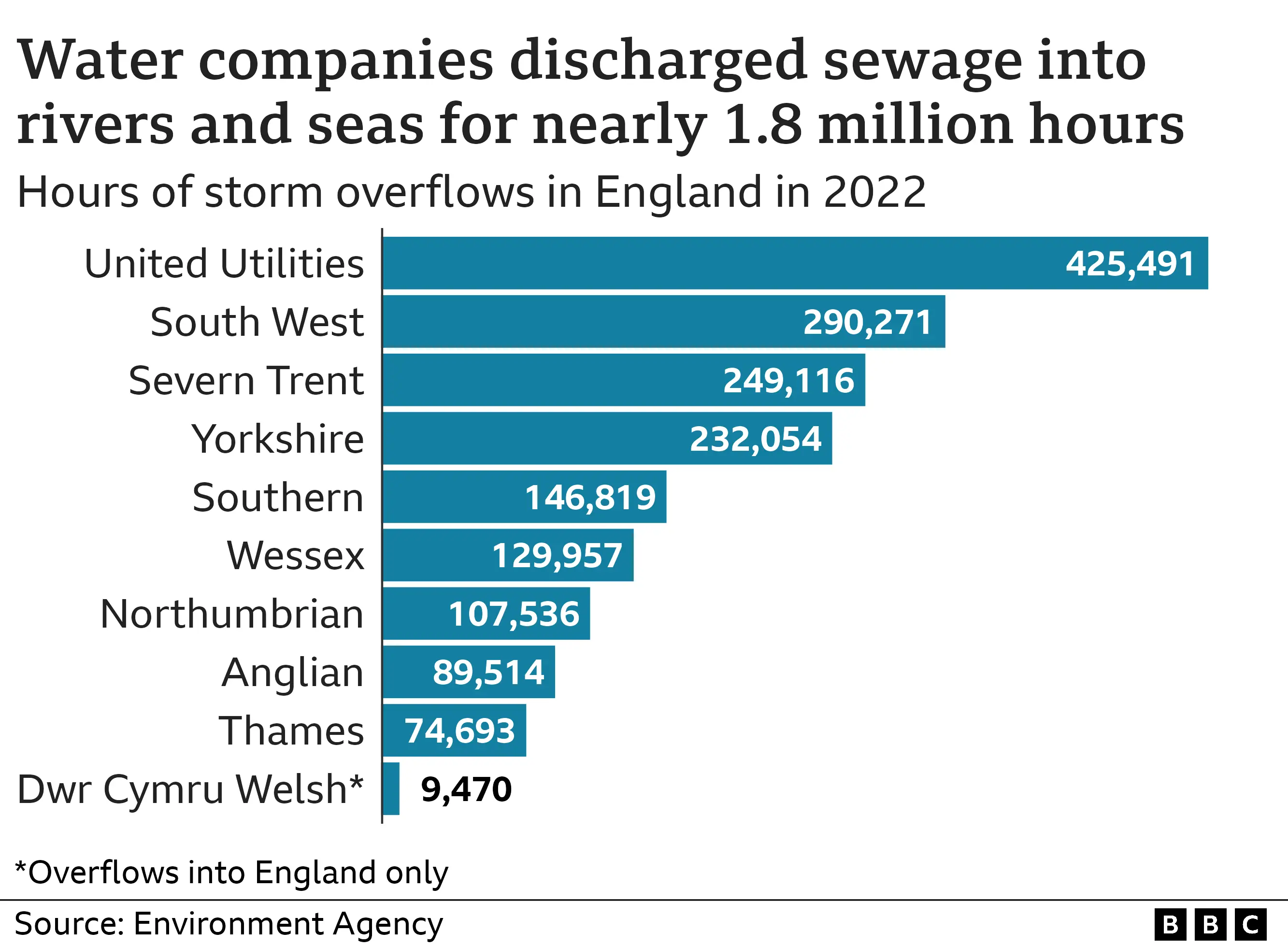
In recent years, Conservative MPs and Tory-run councils in rural and coastal communities have felt the ire of people who have encountered evidence of sewage while out with their children, walking their dogs, or swimming.
Beaches by holiday resorts have repeatedly been contaminated and last September, people were advised not to swim at six beaches in Sussex when sewage was released into the sea.
Anger has also been stoked on social media since left-wing site EvolvePolitics listed 265 Conservative MPs who voted "to allow" water companies to carry on dumping sewage - blocking a Labour amendment to the Environment Bill which would have placed a legal duty on firms to phase out the practice.
The Tories argued the move was unworkable and would result in raw sewage entering people's homes as well as higher household charges.
But plans to fine water companies for dumping sewage were recently announced by Environment Secretary Therese Coffey as part of a raft of measures to "make polluters pay".
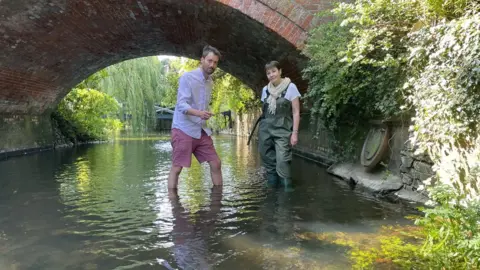 Alex Hammond
Alex HammondThe Green Party, which wants to see the water industry renationalised, said firms could not go on being "rewarded for failure" and its co-leader Adrian Ramsay has called for a halt to dividend payouts to shareholders.
Liberal Democrat leader Sir Ed Davey, who described the sewage issue as a "national scandal", has called for a ban on dumping on blue flag beaches and the party believes its message is particularly hitting home with the "dog walker demographic" and younger people.
'Open sewers'
Water firms in England and Wales have been private, regional monopolies since 1989, accused by some of putting profits and executive bonuses before promised investment.
They remain the only countries in the world to have a fully privatised water and sewage disposal system, though there is little evidence publicly-owned services in Scotland and Northern Ireland cope any better with sewage.
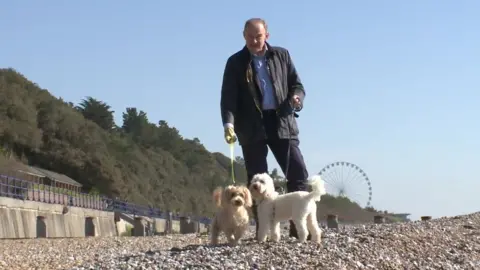
Labour's shadow environment secretary Jim McMahon has accused the Conservatives of allowing England's communities to be treated as "open sewers" and has called for automatic fines and a target to end 90% of sewage discharges by 2030.
The Conservatives say sewage is dumped more frequently in Wales where Labour is in power, while the UK government has introduced widespread monitoring and tougher regulations.
Meanwhile the proportion of bathing waters assessed as excellent has risen from 51% in 2010 to 72%, ministers add.


The Conservative Environment Network (CEN) argues the government is partly the victim of its own success in increasing monitoring of overflows and providing more information.
These days, storm overflow and sewage figures are perhaps as closely watched as GDP and NHS waiting lists at the headquarters of the UK's political parties - and the issue looks set to roll on into the next general election campaign.
